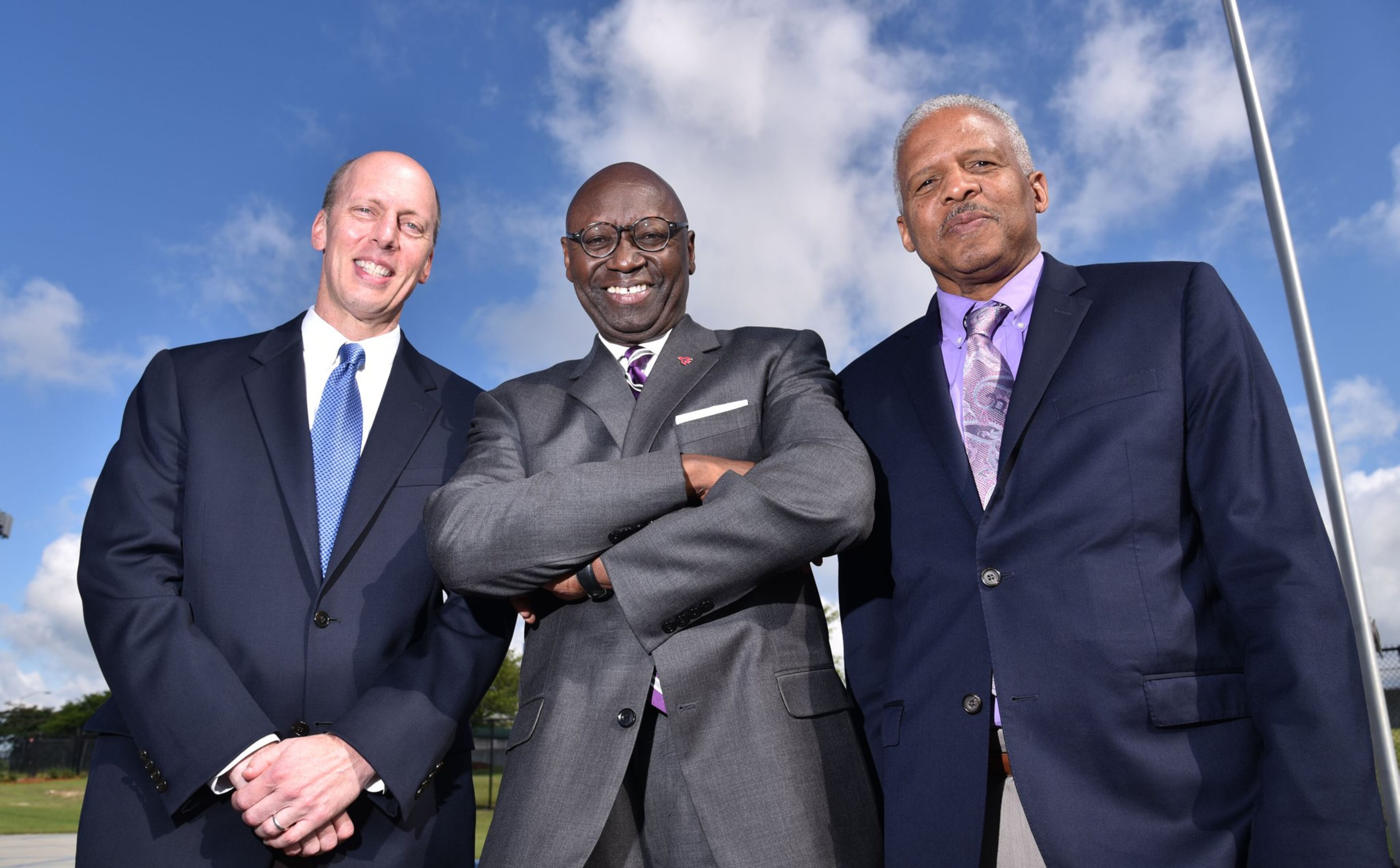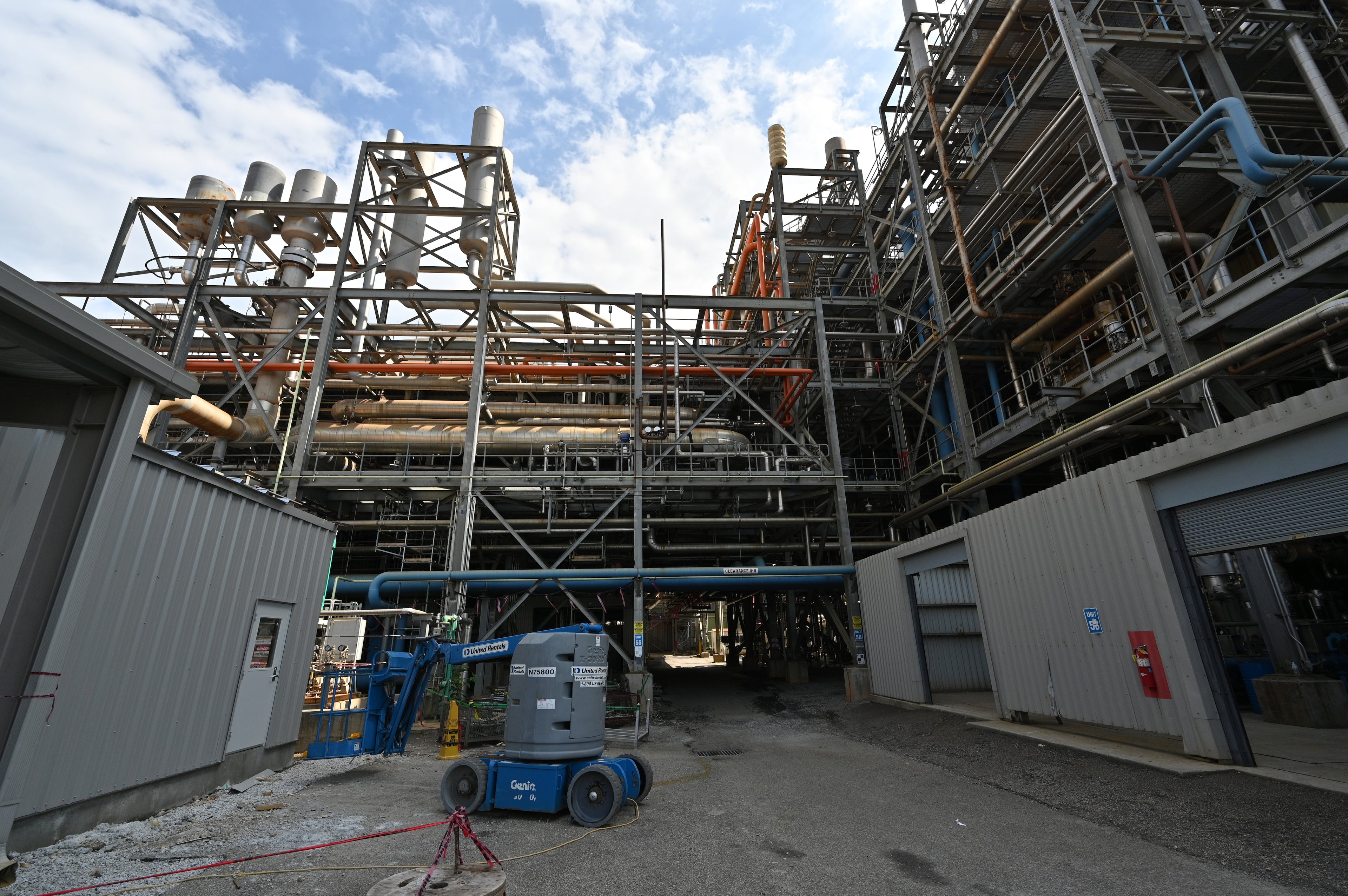Airport squeeze: Hartsfield-Jackson expands on limited land

As Hartsfield-Jackson International Airport expands, it’s running out of space.
So in order to build, the airport must demolish buildings, move critical operations, close parking lots and divert travelers during construction.
That complicates the airport’s long-range, $6 billion expansion plan, now in the early stages, and turns parts of it into a giant game of Tetris as planners cram new facilities into limited space.
“The biggest challenge we have as an airport is we’re on 4,700 acres,” Hartsfield-Jackson general manager Roosevelt Council said. “There’s not a lot of greenfield space.”
While Atlanta has the world’s busiest airport, other airports with far less traffic have far more space — Dallas-Fort Worth International, for instance, with 18,000 acres and Denver International with 34,000.
Those airports “have been able to put together larger properties … as air travel has grown,” said Jeff Letwin, special counsel at law firm Saul Ewing who has expertise in airport expansion and redevelopment.
Hartsfield-Jackson, by contrast, is hemmed in by I-85 to the north and west, I-75 to the east and I-285 to the south. The airport is also surrounded by communities of people and businesses including College Park, Forest Park and Hapeville.
Hartsfield-Jackson has “done a tremendous job of accommodating on a small space this huge airport — the busiest airport in the world,” Letwin said.
Now, as the modernization program gets going, almost every big construction element will require relocating facilities. The end result, if all goes well, will be an airport with much more capacity but about the same physical footprint.
For airport officials and project managers, it’s a juggling act that demands extensive planning and creativity, and can require more time and money to demolish and rebuild facilities, compared to an expansion on undeveloped land.
Curbside canopies
One of the first major projects, construction of massive canopies over the domestic terminal curbside areas, requires the temporary relocation of Delta Air Lines’ curbside check-in and soon, the recently added Uber and Lyft rideshare pickup areas.
The biggest challenge with the canopy project is making room for massive piers that will hold up the structures, said Frank Rucker, assistant general manager for planning and development at Hartsfield-Jackson.
Parts of the garage must be sawed off to make room instead of being demolished with a wrecking ball, to avoid damaging the existing parking garages until they are ready to be torn down and rebuilt in phases.
All of the work must be done with tens of thousands of passengers moving through the area on a daily basis. That means much of the work is done in phases, with some completed at night when operations are less busy.
“It’s quite a sequence,” Rucker said.
Another upcoming big project, developing a hotel and commercial development next to the terminal, calls for relocation of some parking, limo and shuttle staging areas, a taxi hold lot and other facilities.
A longer-term element, a new Concourse G on the eastern end of the existing line of concourses, will require moving Delta cargo facilities, flight kitchens, employee parking and airport buildings.
Because Delta wants to keep its cargo facilities and flight kitchens close to its planes, the facilities will be moved farther east but still within the airport boundaries. But that, in turn, means displacing an airport fire station and occupying the site of three current Georgia Power substations.
Another planned project, adding gates to Concourse T, requires curving it to the west to avoid interfering with a runway protection zone. That means the addition will take up part of a parking lot at the domestic terminal and it will require the move of an exit plaza and airport fire station.
‘No available room’
“Given that there’s no available room there, we have to start moving things,” Hartsfield-Jackson planning director Tom Nissalke said.
The Concourse T extension will also take up space used by a Delta ground handling equipment shop, which will have to be relocated to where the current park-ride reserve lot is. That and the construction of a new end-around taxiway will require the closure of the park-ride reserve lot and another park-ride lot.
The end-around taxiway on the south side of the airfield will require about 5,300 parking spots to be demolished, and will also require FAA equipment to be relocated and airport roads to be closed or relocated.
The closure of the park-ride reserve lot due to the end-around taxiway, the closure of the West economy parking lot due to the InterContinental hotel, and closure of the North economy parking due to the Concourse T extension means the airport will lose thousands of parking spaces.

In a budget briefing to the Atlanta city council, airport officials described how that is expected to drive a decrease in parking revenue. The airport is building an ATL West parking deck to help make up for the lost parking spaces, but it will take a couple of years to complete and will act as a remote parking deck reachable by SkyTrain rather than premium spaces or parking lots within walking distance. Also planned is a park-ride shuttle lot off Sullivan Road.
Other projects on the airfield will require the move of buildings used for airport operations and safety.
Constructing new cargo buildings requires moving an Atlanta Police Department airport K9 facility, a maintenance building and an old Gate Gourmet flight kitchen, and the relocation of a stretch of Sullivan Road.
One of the biggest projects ahead is a sixth runway. Though years away, the work would likely require several hotels to close. A Sheraton has already been acquired and will be shut down in July and is expected to be demolished in the future to make way for future airport expansion.
Squeezing in a runway
The airport had considered during a 1999 master plan expanding beyond its borders to add a sixth runway, but that plan has been nixed in favor of squeezing the additional runway onto the existing airfield. That option is more politically palatable but also depends on the advent of more precise air traffic control technology that will enable planes to be closer to each other as they take off and depart.
“Using condemnation powers is never easy to do,” Letwin said, referring to the challenge of expanding the airport’s boundaries. Doing so would “meet some stiff resistance.”
Sometimes, clearing space to build a new project requires two phases of moves — demolitions to clear space in one area of the airport, which will house relocated operations demolished to clear space for the new project.
“We have to create real estate to relocate facilities,” Nissalke said.
With the airport’s master plan extending until 2030, will there be any room left for further expansion on the airport’s increasingly crowded 4,700 acres?
“Too early to tell,” Council said.
U.S. busiest airports: Bigger isn’t always busier
Airport, passengers handled in 2016, land area
1. Hartsfield-Jackson, 104.2 million, 4,700 acres
2. Los Angeles, 80.9 million, 3,600 acres
3. Chicago O’Hare, 78 million, 7,300 acres
4. Dallas/Fort Worth, 65.7 million, 18,000 acres
5. New York JFK, 58.9 million, 4,930 acres
6. Denver, 58.3 million, 34,000 acres
Source: Airports Council International, airports
MYAJC.COM: REAL JOURNALISM. REAL LOCAL IMPACT.
AJC Business reporter Kelly Yamanouchi keeps you updated on the latest news about Hartsfield-Jackson International Airport, Delta Air Lines and the airline industry in metro Atlanta and beyond. You'll find more on myAJC.com, including these stories:
- Delta named second-best in J.D. Power ranking
- Airbus launching drone subsidiary in Atlanta
- Ga. officials push Trump administration on issue with Middle East air carriers
Never miss a minute of what's happening in local business news. Subscribe to myAJC.com.
More Stories
The Latest



